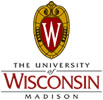Spring Training
SSCC has a full schedule of training workshops planned this semester, including introductions to SAS, SPSS, R, and Stata plus in-depth classes on multiple imputation in Stata, regression (including diagnostics and inference) in R, and mixed models in R. For details and to register, visit our training page.
Remote Desktop without VPN
The SSCC recently set up a Remote Desktop Gateway which allows SSCC members to connect to their office computer using Remote Desktop without first setting up a Virtual Private Networking (VPN) connection to the SSCC network. This may improve performance as well.
To use the Remote Desktop Gateway all you need to do is go into the "advanced" settings of your Remote Desktop Connection and tell it the name of the gateway server. Complete instructions have been added to Connecting to Your Office Computer Using Remote Desktop.
UW Restricted Data Discovery Project Ongoing
As part of a general strategic emphasis on computer security, UW-Madison launched a campus-wide Restricted Data Discovery project with an initial focus on finding Social Security Numbers that are being stored improperly. You may have noticed that we recently added a program called Identity Finder to the suite of security software installed on computers we manage, and it now periodically scans local hard drives for Social Security Numbers just like anti-virus software scans for viruses. Eventually we will begin scanning network drives as well.
In doing so, we will as always be very careful to protect your personal privacy and abide by all sensitive data agreements. While we are required to report to the Office of Cybersecurity how many computers have large numbers of Social Security Numbers on them and what we're doing about them, neither SSCC staff nor staff in the Office of Cybersecurity look at the numbers themselves. Most of them are false positives anyway, and that fraction will likely increase when we start scanning the network. We know very well that many data sets contain nine-digit IDs that have nothing to do with Social Security Numbers. SSCC staff will contact you if we believe there's a problem that needs to be resolved.
If you know you have Social Security Numbers on your computer, first consider whether they can be deleted. If you do need to work with them, contact the Help Desk and we can talk about options for storing them properly (be aware that this is a work in progress). Note that this does not apply to your own Social Security Number: the Office of Cybersecurity does not care greatly if a copy of your tax return ends up on your computer.
We expect that the Restricted Data Discovery project will focus on administrative data for some time yet, but its mandate does include research data and the Office of Cybersecurity is playing an increasing role in ensuring sensitive research data are handled properly.
Tip: Teach your Students How to Use Files
For many years every cohort of incoming undergrads has had more experience with computers than the last. That's still true, but more and more of that experience is with mobile devices rather than full-blown computers. That has some important implications for instructors whose classes include statistical software.
Most mobile applications use files from the Internet and hide anything they do with local files from the user (iOS does not make its file system visible to users at all). Meanwhile statistical software generally uses files on local or network drives and expects users to work with files directly. So if you're teaching students who are new to using statistical software, consider taking a few moments to cover the basics of how to work with files, folders, and network drives. If you're putting files on Learn@UW, make sure your students know to save them to the U: drive or their own computer before using them.
This is basic stuff for anyone who's been using statistical software for a while, but a very brief explanation will save your students a lot of frustration—and save the SSCC's statistical consultants a lot of time.

